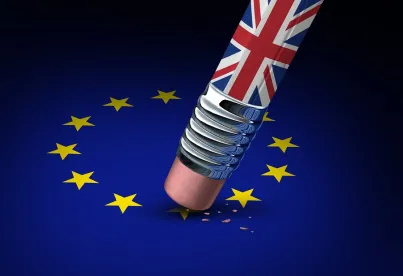Brexit delayed again – now it’s off to the races in a General Election
Despite having finally achieved a Parliamentary majority in favour of a way of delivering Brexit, in the Second Reading of the Withdrawal Agreement Bill on 22nd October, Prime Minister Boris Johnson decided – in the face of Parliament’s refusal to allow him to put the Bill through very rapidly so as to meet the 31st October Brexit deadline – to pursue a General Election instead of pushing the Bill through.
After some “after you, Claude” to-ing and fro-ing, the EU agreed to the request to extend the Article 50 deadline of 31st October which the Prime Minister had been forced by Parliament to send. The EU did so under condition that there should be no re-opening of withdrawal negotiations, no disruption to EU business by the UK (including the UK appointing a member of the new European Commission), and that the UK could leave earlier if the ratification process completed earlier.
A delicate game ensued in Parliament about the basis for a decision to hold the election, with opposition parties wanting to remove the Prime Minister’s discretion over the date of the election, and to make it impossible for him to try again to push the Withdrawal Agreement Bill. On 28th October Parliament rejected the Prime Minister’s attempt to secure an election on 12th December. Parliament then decided on 29th October that the election should be held on 12th December. The difference between the first 12th December and the second 12th December would take too long to explain, and would anyway test the sanity of all but the most extreme political geek.
And so the unhappy child of Theresa May’s disastrous 2017 election fades into the twilight…
The election Bill still needs to go through the House of Lords (unlikely to be problematic) and receive Royal Assent, and the House of Commons needs to tidy up some necessary business. So on current plans Parliament will dissolve on Wednesday 6th November for MPs to campaign for the General Election on Thursday 12th December. The British electorate, used to voting at national level every five years, had a General Election in 2015, the Brexit referendum in 2016, a further General Election in 2017, and now a third General Election in 2019 (the Scots also had an independence referendum in 2014).
Was the 2017-2019 Parliament a travesty of democratic accountability, or a powerful example of representative democracy grappling with issues which had split the nation in two through a binary exercise in direct democracy? Historians will judge. It was certainly a tough one for individual MPs, who regularly found themselves objects of extremely hostile, sometimes violent, social media messaging. Parliament certainly seemed to reflect accurately the division in the electorate, which the polls show has not shifted significantly throughout the period since the 52:48 result of the 2016 Brexit referendum.
“Prediction is very difficult, especially if it’s about the future” – Nils Bohr
So what’s going to happen in the 12th December election? It will be the first December election for almost a century, and the hardest to predict for many decades. Will Boris Johnson scoop the Leave vote across the country, or will Nigel Farage’s Brexit Party damage the Conservatives by arguing that Johnson’s Brexit deal is not really Brexit? Will the clarity of the Liberal Democrats’ Remain position help them and weaken Labour, or will Labour be able to sit on the fence on Brexit and focus the campaign on Tory austerity and public services?
The next six weeks will be exhilarating, confusing and passionate. They will decide the future course of the nation. Nothing more will happen on Brexit until after the election. Whether the election provides a clear way forward will depend on whether a party achieves a clear majority or the election produces another hung Parliament. Watch this space…




 />i
/>i

